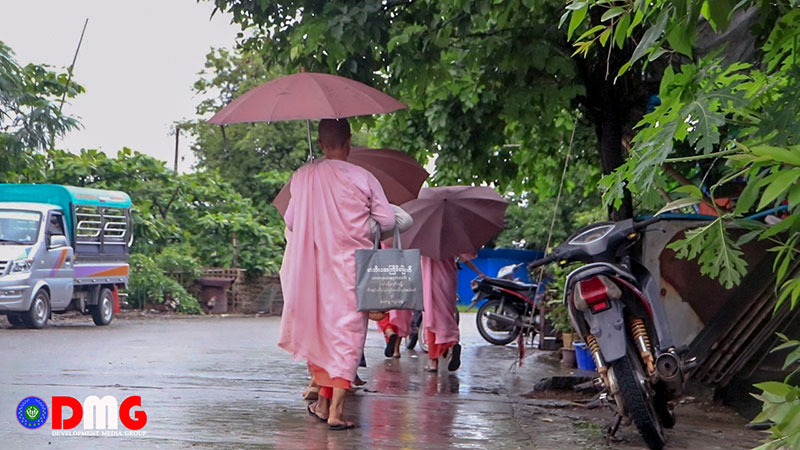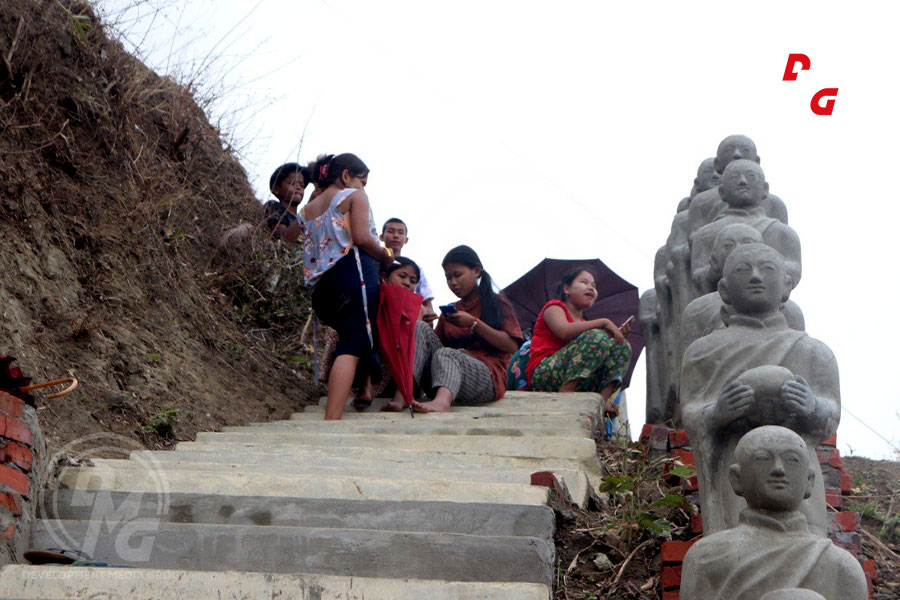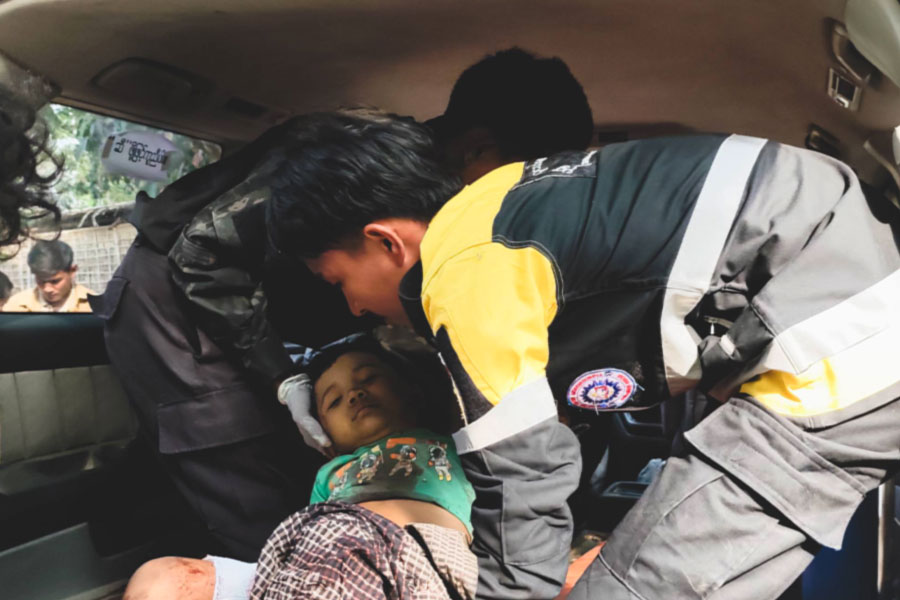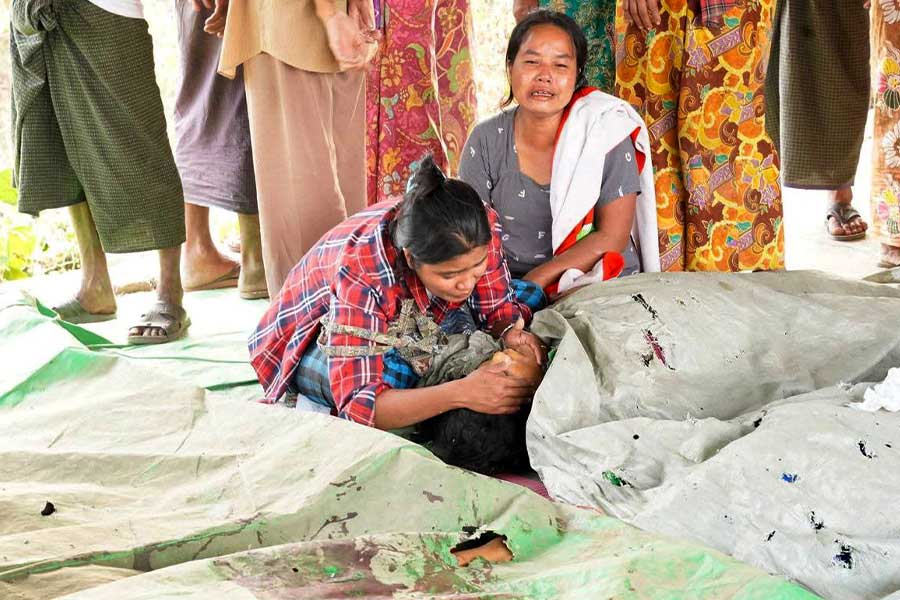- Arakan Army signals willingness to forge strategic partnership with Bangladesh’s new government
- Internet blackout in Arakan State hampers emergency aid delivery
- Arakan residents call for air raid warning systems amid surge in junta airstrikes
- Arakan’s Breathing Space (or) Mizoram–Arakan Trade and Business
- Death toll rises to 18 after junta airstrike on Ponnagyun village market
Buddhist nuns in Sittwe scrimp as coronavirus outbreak depresses almsgiving
Buddhist nuns in Sittwe are struggling to collect alms as donations have dried up amid a spike in new COVID-19 cases in Arakan State over the past month, according to the nuns.
16 Sep 2020

Myo Thiri Kyaw | DMG
16 September, Sittwe
Buddhist nuns in Sittwe are struggling to collect alms as donations have dried up amid a spike in new COVID-19 cases in Arakan State over the past month, according to the nuns.
Donations in the Arakan State capital have fallen as economic activity has slowed markedly amid stay-at-home orders and other restrictions brought on by an outbreak of the virus that began in mid-August. Laypeople’s economic wellbeing is a major factor in almsgiving, noted Ceranasingi, a nun from the Kyaryoke nunnery in Sittwe.
“The government donated five rice sacks but it lasted for about 15 days as there are many nuns at the nunnery. The number of donors has declined significantly when compared with previous years. Local people’s economic situation is seriously affected by the pandemic. This is the reason why the number of donors has decreased,” she told DMG.
Sabbath day meal donations have decreased, and nuns at Kyaryoke and elsewhere have had to economise offerings such as rice, cooking oil and salt donated by private well-wishers, the nun added.
The nuns are concerned that they may face a shortage of alms if the coronavirus stay-at-home orders remain in place for an extended period.
“We were given K5,000 [US$3.70] each by a donor last week. We dare not spend the money and are keeping it so that we can use it when we need it,” the nun said.
Prior to last month’s COVID-19 outbreak, nuns would leave the nunnery to make weekly rounds, known as pindacāra, collecting alms such as rice and cash from laypeople. But since what is being described as the pandemic’s “second wave,” the nuns have not gone outside, according to the Buddhist nuns.
There are three nunneries in Sittwe, which house about 300 Buddhist nuns.

















.jpg)